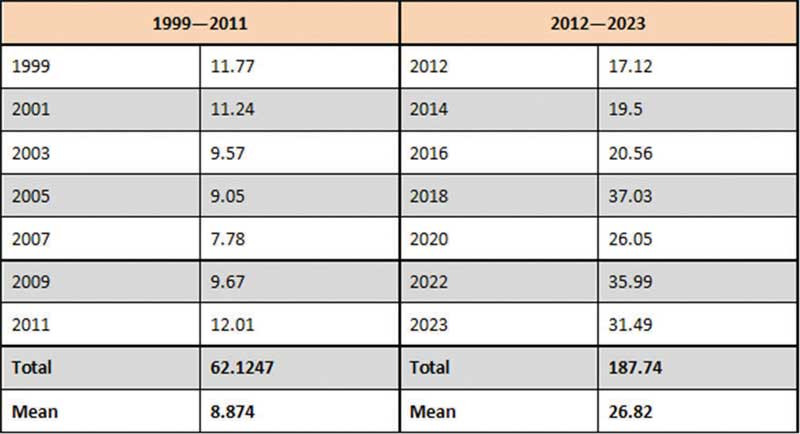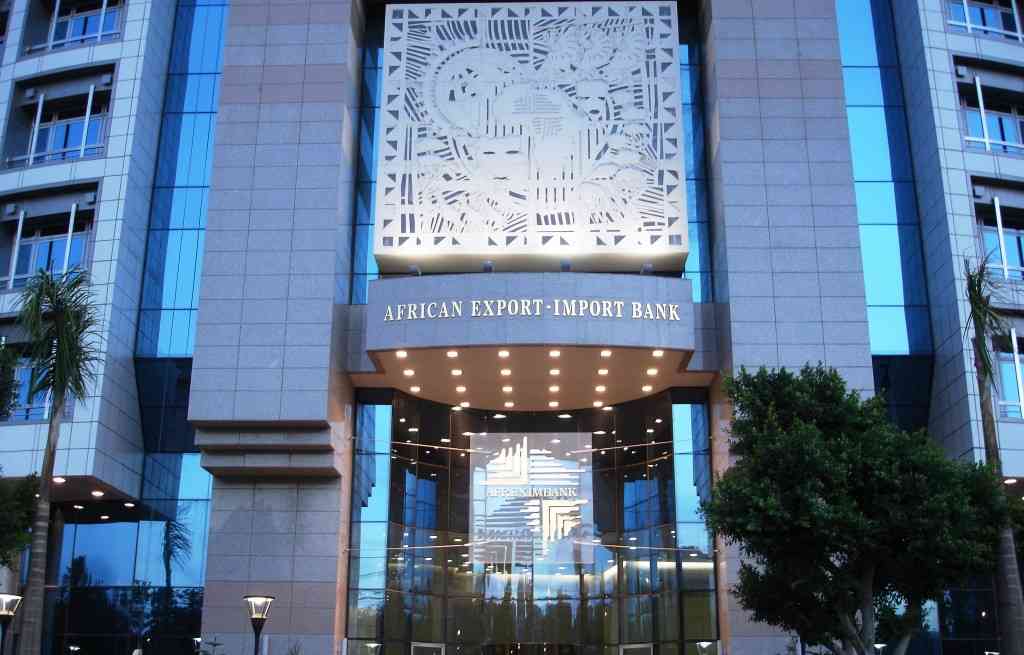
Finance minister Mthuli Ncube’s long draft budget statement is a faithful repetition of the past. Yet it is clear that Zimbabwe will not get far by repeating the past.
The past 40 years of Independence have indeed given Zimbabwe major improvements in Health and Education, but it has not managed to create more jobs. It has not developed a remarkable economic growth rate.
The number of companies have not increased since Independence. Tens of thousands of Zimbabweans are unemployed. About half of them, half the adult population of the country, have left the country to find work elsewhere.
Luckily, they have found work mainly within the region, and in Britain, the former colonial master. Both the region and Britain require Zimbabweans as employees, albeit at lower salaries than for their own citizens. Can we do better?
The above table is based on figures available on the internet on the website: Zimbabwe: Gross domestic product (GDP) in current prices from 1999 to 2028 (in billions of USDs). https.www.statistista.com/statistics/455285/gross-domestic-product-gdp-in-zimbabwe. Note the figures are in current US$s.
Due to the constant changes in the United States dollar exchange rate for the Zimbabwean dollar the above international figures are the most easily available.
The figures show that the estimated yearly mean in terms of current US dollars is US$8,87 billion for 1999-2011 and US$26,82 billion for 2012-2023, almost a three fold increase.
Whilst it is accepted that such an increase cannot be guaranteed, it certainly means that adherence to the percentages and ways of utilising funds as was done in the previous 40 years should be seriously re-examined and reviewed.
- Budget dampens workers’ hopes
- Govt issues $24 billion Covid-19 guarantees
- Letter to my People:They have no answers for Nero’s charisma
- ZMX to enhance farm profitability
Keep Reading
Health and Education have featured as major items on the National Budget over the past four decades. Both require employment of a large number of highly qualified personnel.
Presently, these staff are all employed as civil servants, a wise professional decision but a difficult financial one. It was decided that African staff with such qualifications would be paid the same as their white counterparts. Yet these whites staff served only 4% of the population before Independence. This popular decision meant that Zimbabwe agreed to retain the deep divide between white salaries and those given to Africans who comprise more than 90% of the population.
Today large numbers of Africans enjoy access to Health and Education, compared to literally a handful before Independence. Ninety-six percent enjoy primary education and about half enjoy secondary education. Moreover, Zimbabwe’s training system is good, and its staff have fared well all over the world. Yet allowing a small number of Africans to obtain salaries once held by whites only does not solve the salary divide.
It also has not solved the economic development divide. Health and Education staff are critically important, but they do not play the only roles needed for economic development.
In addition to the human development that continues to be of critical importance there is need for infrastructure, national, provincial and individual. Not enough has been done in that area.
The fact that Zimbabwe does not have a reasonable railway system for its imports and exports is disastrous. Main roads are good, but less important roads even in the capital city are dangerously poor. Electricity is not widely and easily available, and this is a serious blow to industrialisation. That the number of industries have not been able to increase is a serious blow to economic development.
Water development has been neglected. Even in middle class homes in the capital city it is possible to have two to three days without water.
There is need to develop both agriculture and industrialisation. The state has placed a lot of money into agriculture, but it is reported by the state itself that the way it has been utilised has not been well accounted for.
The Fast Track Land Resettlement, FTLR, has apparently been successful, but many details need to be completed. The payment of White farmers for example and the systems through which land will be utilised and owned have yet to be finalised.
Given that the issue is a complex one, the sooner it is started the more possible it will be to work out reasonable detailed solutions. Why not identify and work out the success stories and begin with these.
The same is true of industrializsation. Planning, policies and procedures are difficult to coordinate. Civil servants, researchers, development institutions, potential financiers, are all at a loss. We have yet to see draft plans as well as practical programmes in action. The role of the state should be critical, yet it is likely that those in charge may not be working closely with practitioners and experts.
As already mentioned the civil service is large, and getting larger. Yet the civil service is not the main agent for economic growth and development. Local government and the private sector both have key roles to play, liaising with the state. Each has important but separate responsibilities.
Utilising the civil service to create jobs for friends and relatives may appear a faithful way to behave, but it is unlikely to provide the increased economic growth that is required to provide employment for all.
There are many success stories in Zimbabwe, especially in the early years of Independence. For example the decentralised rural district councils and municipalities did a marvellous job working closely with communities to construct Health and Education facilities.

They should have a continued importance constructing roads, storerooms and factories for export into the regions. This is especially so for locations which are close to export markets, such as Beitbridge. The state should provide grants and low interest loans through banks for such institutions. Imagine new polytechnics and factories springing up to provide food and goods within the region and for export to neighbours.
Last but not least, Zimbabwe is a small country surrounded by a dozen smaller countries and one gigantic neighbour, South Africa. In order for Zimbabwe to develop it must do so in close co-operation with its neighbours. We cannot grow in isolation.
Regional trade with our immediate neighbours should be developed as much as possible. Zimbabwe’s existing farms and industries can already export and import profitably with its neighbours.
South African companies should be encouraged to establish factories in Zimbabwe in partnership with Zimbabweans close to export routes. This will be mutually valuable. Zimbabwe will have to improve its electricity and factory facilities at low rental rates if it expects to do so. The state can assist decentralised localities to do this.
- Chung was a secondary school teacher in the township, a lecturer at polytechnics and universities, teacher trainer in the liberation struggle, civil servant and UN civil servant and minister of primary and secondary education. These weekly New Horizon articles are coordinated by Lovemore Kadenge, an independent consultant, managing consultant of Zawale Consultants (Pvt) Ltd, past president of the Zimbabwe Economics Society and past president of the Chartered Governance & Accountancy Institute in Zimbabwe (CGI Zimbabwe). — [email protected] or mobile: +263 772 382 852.










